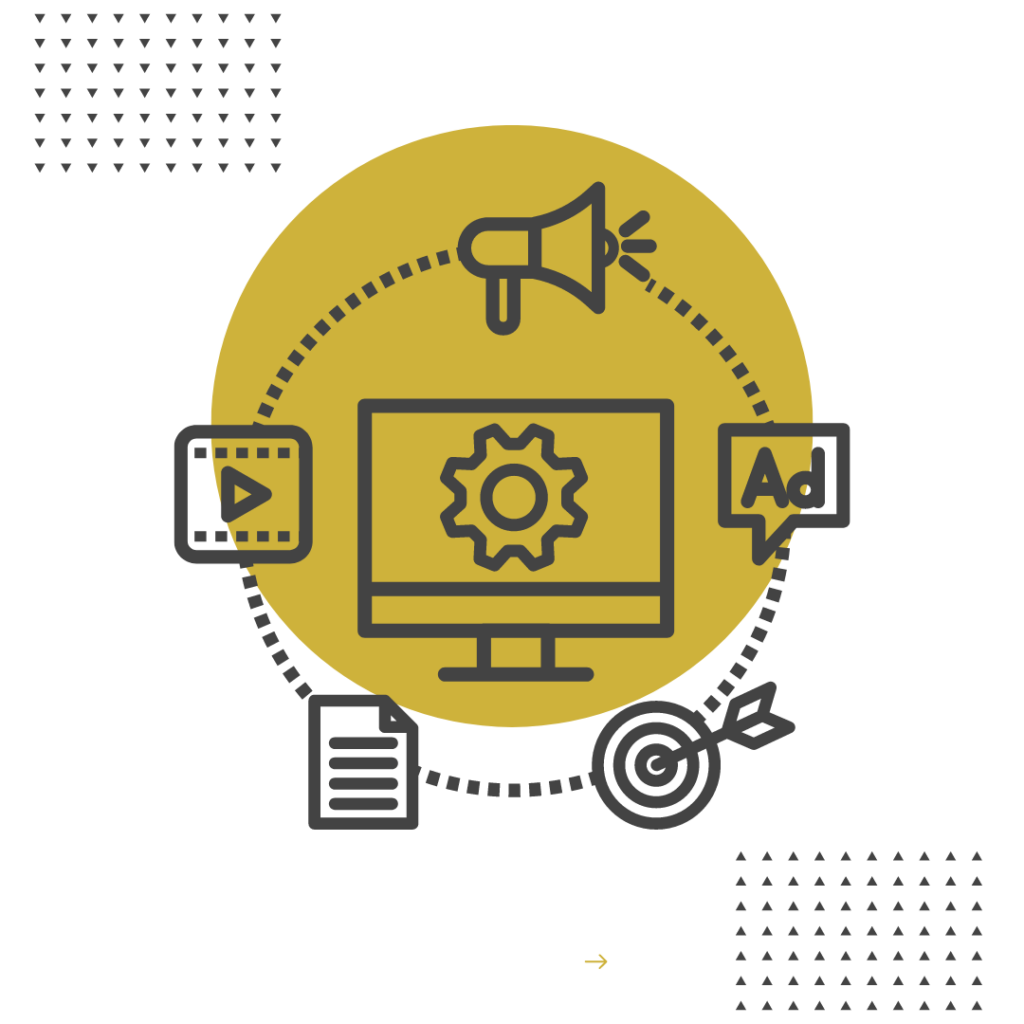
Build In-House Expertise Or Hire An External Agency
How to avoid too many cooks in the kitchen without missing key ingredients in your ecommerce digital marketing strategy.
Figuring out whether to hire an agency or an in-house team for your ecommerce digital marketing is like cooking a meal. In the same way that you wouldn’t need a cookbook to create a dish you’ve mastered a dozen times, but need to pull out the recipe for something new or unfamiliar; hiring a marketing resource internally or externally is dependent on your level of expertise and comfort with how to achieve your goals.
Think of an agency as an experienced chef who knows all the tricks. Add a sprig of rosemary to the garlic confit to bring out the flavor of the gruyere: they do that. An agency has a whole crew of sous chefs specializing in SEO, PPC, social media, email – and hopefully your site platform.
Need a quick boost to launch a campaign? They’re your guys.
Need help with a tricky problem? Boom! Fresh perspective and expert advice delivered.
It’s like having a built-in brain trust – that also cleans the kitchen afterward.
Alternatively, building an in-house team, or hiring a single independent contributor, is like having a personal chef. You get to nurture the talent, shape the strategy, and watch your little seeds of expertise blossom into a powerhouse team. It’s more work upfront, but the long-term payoff can be huge. Plus, you get to keep all the best marketing cookies to yourself. The downside is that you get a single brain, and any opportunities and strategies are limited to that individual’s experiences and strengths.
If you have made the decision to work with an agency, here are some things to consider:
Considerations To Make While Hiring a Marketing Resource
- Cost: The average salary of a Digital Marketing Manager in the U.S. is $90k. The average cost of a digital marketing agency is $80k. Depending on your goals and the types of digital marketing practices you include, this can fluctuate. But the takeaway is that the common misconception of an internal team member costing less than an agency is, in fact, a misconception.
- Do you have a strong understanding of digital marketing? An agency’s flexibility and expertise might be your secret weapon if you’re just starting. For established businesses, an in-house team can provide long-term stability and brand mastery.
- How much control do you crave? Agencies offer guidance, but you’re the captain of the ship. Building your team means steering the wheel yourself, which can be exhilarating.
- Capacity & Time: Do you have the time to commit to guiding a team member? An agency requires much less hands-on management.
- Budget For Tools: Agencies already have access to pricey, exclusive tools because they use them for all of their clients. The cost for tools like SEMRush, Screaming Frog, Agency Analytics, BigQuery, etc. can add up quickly for a business – but is often baked into the agency cost.
How To Know You’re Hiring The Right Marketing Agency
Choosing the right digital marketing agency can be a daunting task, but it’s crucial for ensuring your marketing efforts drive tangible results. Here are some key indicators to help you identify a good digital marketing agency:
Agency Expertise and Experience:
- Do they specialize in your industry or niche? Industry-specific knowledge ensures they understand your target audience and market challenges.
- Do they have a proven track record of success? Look for case studies and testimonials showcasing their achievements for similar clients.
- Do they stay updated on the latest digital marketing trends and technologies? Agencies at the forefront of the industry can adapt strategies to changing landscapes.
Transparency and Communication:
- Do they clearly explain their proposed strategies and how they align with your goals? Avoid agencies using vague language or making unrealistic promises.
- Do they provide regular reports and data-driven insights on campaign performance? Transparency and open communication are key to building trust and making informed decisions.
- Are they readily available to answer your questions and address your concerns? Open communication fosters a stronger collaborative partnership.
Process and Methodology:
- Do they have a well-defined onboarding process and clear communication channels? A smooth onboarding ensures a seamless transition and sets the stage for success.
- Do they prioritize data-driven decision-making and analytics? Relying on data and measurable results shows commitment to optimization and effectiveness.
- Do they offer flexible engagement models and adapt to your specific needs? A good agency tailors their approach to suit your budget and project requirements.
Team and Culture:
- Do their team members demonstrate expertise and experience relevant to your project? Look for qualifications and certifications beyond just impressive titles.
- Do their values and culture align with your brand and business vision? Shared values foster a stronger partnership and facilitate collaboration.
- Do you feel comfortable interacting with their team and are they receptive to your feedback? A friendly and open team dynamic is crucial for a successful working relationship.
Additional Tips:
- Get quotes and proposals from multiple agencies. Compare their offerings, fees, and value propositions to find the best fit.
- Check online reviews and industry mentions. See what others are saying about the agency’s work and reputation.
The Best Time To Find A Digital Marketing Partner
The best time to hire a digital marketing agency doesn’t exist as a specific season or month. Instead, it’s more about aligning your needs with the agency’s workload and expertise. Here’s how to think about it:
Your Timing to Hire:
- Urgent need: If you have a pressing campaign or need immediate expertise, you might prioritize agencies with quicker availability, even if it’s a busier time.
- Planned launch: If you have a launch date in mind, consider the lead time the agency needs to set up and execute your strategy. Avoid starting right before peak periods for both you and the agency.
- Budget availability: Some agencies offer seasonal discounts or promotions, so timing your search around these offers could be beneficial.
Agency Workload:
- Peak seasons: Agencies often experience busier periods around holidays, back-to-school, or specific industry events. While they can still accommodate new clients, be prepared for potentially longer onboarding timelines.
- Slower periods: Agencies might be more eager to take on new clients during slower periods, offering better deals or quicker availability. However, ensure they can dedicate resources to your project.
Strategic Considerations:
- Industry trends: Certain industries have unique peak seasons related to consumer behavior. Aligning your agency onboarding with relevant industry trends can optimize your reach and campaign effectiveness.
- Internal readiness: Ensure your team is prepared to collaborate with the agency effectively before onboarding. Having internal goals, strategies, and resources ready can streamline the process.
Ultimately, the best choice is the one that makes you feel like you’ve got the marketing world by the tail. Remember, the best digital marketing solution is not just the most expensive or trendy, but the one that understands your unique needs and can effectively contribute to your marketing goals. Take your time, do your research, and choose whatever you feel best meets you where you are on your ecommerce journey.



